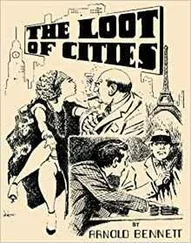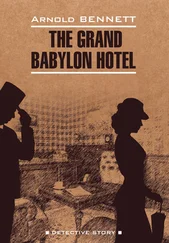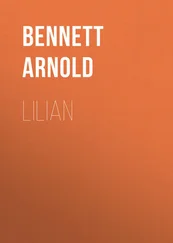Arnold Bennett - These Twain
Здесь есть возможность читать онлайн «Arnold Bennett - These Twain» — ознакомительный отрывок электронной книги совершенно бесплатно, а после прочтения отрывка купить полную версию. В некоторых случаях можно слушать аудио, скачать через торрент в формате fb2 и присутствует краткое содержание. Жанр: foreign_prose, foreign_antique, foreign_language, на английском языке. Описание произведения, (предисловие) а так же отзывы посетителей доступны на портале библиотеки ЛибКат.
- Название:These Twain
- Автор:
- Жанр:
- Год:неизвестен
- ISBN:нет данных
- Рейтинг книги:5 / 5. Голосов: 1
-
Избранное:Добавить в избранное
- Отзывы:
-
Ваша оценка:
- 100
- 1
- 2
- 3
- 4
- 5
These Twain: краткое содержание, описание и аннотация
Предлагаем к чтению аннотацию, описание, краткое содержание или предисловие (зависит от того, что написал сам автор книги «These Twain»). Если вы не нашли необходимую информацию о книге — напишите в комментариях, мы постараемся отыскать её.
These Twain — читать онлайн ознакомительный отрывок
Ниже представлен текст книги, разбитый по страницам. Система сохранения места последней прочитанной страницы, позволяет с удобством читать онлайн бесплатно книгу «These Twain», без необходимости каждый раз заново искать на чём Вы остановились. Поставьте закладку, и сможете в любой момент перейти на страницу, на которой закончили чтение.
Интервал:
Закладка:
"Come this way, will you?" said Clara effusively, and yet conspiratorially, pointing to the drawing-room, which was to the left of the front-door. From the dining-room, which was to the right of the front-door, issued confused sounds. "Albert's here. I'm so glad you've come," she added to Hilda.
Auntie Hamps murmured warningly into Hilda's ear:
"It's Bert's birthday party."
A fortnight earlier Hilda had heard rumours of Bert's approaching birthday-his twelfth, and therefore a high solemnity-but she had very wrongly forgotten about it. "I'm so glad you've come," Clara repeated in the drawing-room. "I was afraid you might be hurt. I thought I'd just bring you in here first and explain it all to you."
"Oh! Bless me!" exclaimed Auntie Hamps, – interrupting, as she glanced round the drawing-room. "We are grand! Well I never! We are grand!"
"Do you like it?" said Clara, blushing.
Auntie Hamps in reply told one of the major lies of her career. She said with rapture that she did like the new drawing-room suite. This suite was a proof, disagreeable to Auntie Hamps, that the world would never stand still. It quite ignored all the old Victorian ideals of furniture; and in ignoring the past, it also ignored the future. Victorian furniture had always sought after immortality; in Bursley there were thousands of Victorian chairs and tables that defied time and that nothing but an axe or a conflagration could destroy. But this new suite thought not of the morrow; it did not even pretend to think of the morrow. Nobody believed that it would last, and the owners of it simply forbore to reflect upon what it would be after a few years of family use. They contemplated with joy its first state of dainty freshness, and were content therein. Whereas the old Victorians lived in the future (in so far as they truly lived at all), the neo-Victorians lived careless in the present.
The suite was of apparent rosewood, with salmon-tinted upholstery ending in pleats and bows. But white also entered considerably into the scheme, for enamel paint had just reached Bursley and was destined to become the rage. Among the items of the suite was a three-legged milking-stool in deal covered with white enamel paint heightened by salmon-tinted bows of imitation silk. Society had recently been thunderstruck by the originality of putting a milking-stool in a drawing-room; its quaintness appealed with tremendous force to nearly all hearts; nearly every house-mistress on seeing a milking-stool in a friend's drawing-room, decided that she must have a milking-stool in her drawing-room, and took measures to get one. Clara was among the earlier possessors, the pioneers. Ten years-five years-before, Clara had appropriated the word "æsthetic" as a term of sneering abuse, with but a vague idea of its meaning; and now-such is the miraculous effect of time-she was caught up in the movement as it had ultimately spread to the Five Towns, a willing convert and captive, and nothing could exceed her scorn for that which once she had admired to the exclusion of all else. Into that mid-Victorian respectable house, situate in a rather old-fashioned street leading from Shawport Lane to the Canal, and whose boast (even when inhabited by non-conformists) was that it overlooked the Rectory garden, the new ideals of brightness, freshness, eccentricity, brittleness and impermanency had entered, and Auntie Hamps herself was intimidated by them.
Hilda gave polite but perfunctory praise. Left alone, she might not have been averse from the new ideals in their more expensive forms, but the influence of Edwin had taught her to despise them. Edwin's tastes in furniture, imbibed from the Orgreaves, neglected the modern, and went even further back than earliest Victorian. Much of the ugliness bought by his father remained in the Clayhanger house, but all Edwin's own purchases were either antique, or, if new, careful imitations of the pre-Victorian. Had England been peopled by Edwins, all original artists in furniture might have died of hunger. Yet he encouraged original literature. What, however, put Hilda against Clara's drawing-room suite, was not its style, nor its enamel, nor its frills, nor the obviously inferior quality of its varnish, but the mere fact that it had been exposed for sale in Nixon's shop-window in Duck Bank, with the price marked. Hilda did not like this. Now Edwin might see an old weather-glass in some frowsy second-hand shop at Hanbridge or Turnhill, and from indecision might leave it in the second-hand shop for months, and then buy it and hang it up at home, – and instantly it was somehow transformed into another weather-glass, a superior and personal weather-glass. But Clara's suite was not-for Hilda-thus transformed. Indeed, as she sat there in Clara's drawing-room, she had the illusion of sitting in Nixon's shop.
Further, Nixon had now got in his window another suite precisely like Clara's. It was astonishing to Hilda that Clara was not ashamed of the publicity and the wholesale reproduction of her suite. But she was not. On the contrary she seemed to draw a mysterious satisfaction from the very fact that suites precisely similar to hers were to be found or would soon be found in unnumbered other drawing-rooms. Nor did she mind that the price was notorious. And in the matter of the price the phrase "hire-purchase" flitted about in Hilda's brain. She felt sure that Albert Benbow had not paid cash to Nixon. She regarded the hire-purchase system as unrespectable, if not immoral, and this opinion was one of the very few she shared with Auntie Hamps. Both ladies in their hearts, and in the security of their financial positions, blamed the Benbows for imprudence. Nobody, not even his wife, knew just how Albert "stood," but many took leave to guess-and guessed unfavourably.
"Do sit down," said Clara, too urgently. She was so preoccupied that Hilda's indifference to her new furniture did not affect her.
They all sat down, primly, in the pretty primness of the drawing-room, and Rupert leaned as if tired against his mother's fine skirt.
Hilda, expectant, glanced vaguely about her. Auntie Hamps did the same. On the central table lay a dictionary of the English language, open and leaves downwards; and near it a piece of paper containing a long list of missing words in pencil. Auntie Hamps, as soon as her gaze fell on these objects, looked quickly away, as though she had by accident met the obscene. Clara caught the movement, flushed somewhat, and recovered herself.
"I'm so glad you've come," she repeated yet again to Hilda, with a sickly-sweet smile. "I did so want to explain to you how it was we didn't ask George-I was afraid you might be vexed."
"What an idea!" Hilda murmured as naturally as she could, her nostrils twitching uneasily in the atmosphere of small feuds and misunderstandings which Clara breathed with such pleasure. She laughed, to reassure Clara, and also in enjoyment of the thought that for days Clara had pictured her as wondering sensitively why no invitation to the party had come for George, while in fact the party had never crossed her mind. She regretted that she had no gift for Bert, but decided to give him half-a-crown for his savings-bank account, of which she had heard a lot.
"To tell ye the truth," said Clara, launching herself, "we've had a lot of trouble with Bert. Albert's been quite put about. It was only the day before yesterday Albert got out of him the truth about the night of your At Home, Hilda, when he ran away after he'd gone to bed. Albert said to him: 'I shan't whip you, and I shan't put you on bread and water. Only if you don't tell me what you were doing that night there'll be no birthday and no birthday party-that's all.' So at last Bert gave in. And d'you know what he was doing? Holding a prayer-meeting with your George and that boy of Clowes's next door to your house down Hulton Street. Did you know?"
Читать дальшеИнтервал:
Закладка:
Похожие книги на «These Twain»
Представляем Вашему вниманию похожие книги на «These Twain» списком для выбора. Мы отобрали схожую по названию и смыслу литературу в надежде предоставить читателям больше вариантов отыскать новые, интересные, ещё непрочитанные произведения.
Обсуждение, отзывы о книге «These Twain» и просто собственные мнения читателей. Оставьте ваши комментарии, напишите, что Вы думаете о произведении, его смысле или главных героях. Укажите что конкретно понравилось, а что нет, и почему Вы так считаете.












